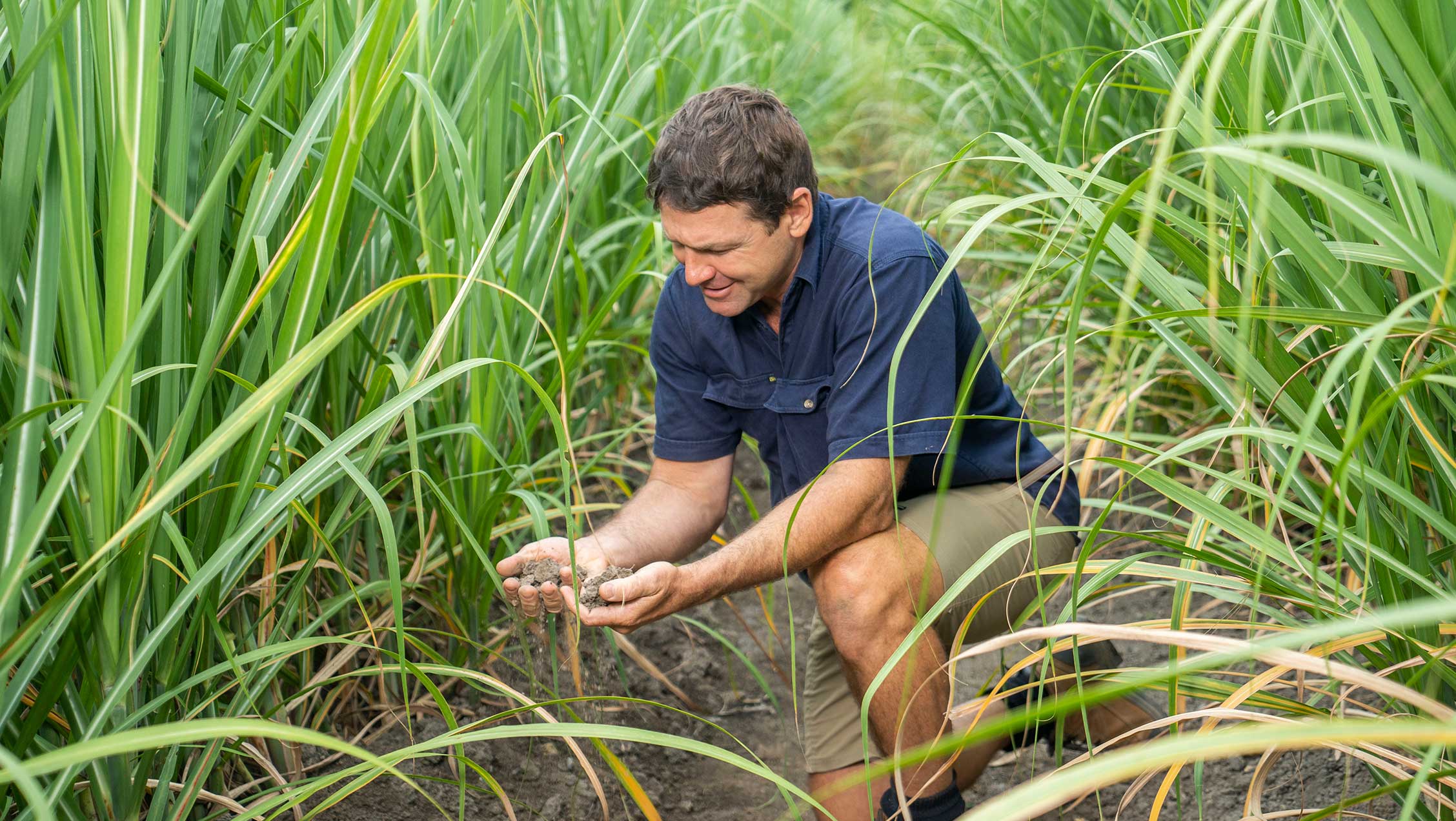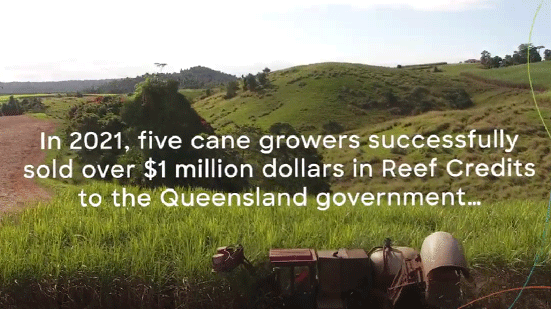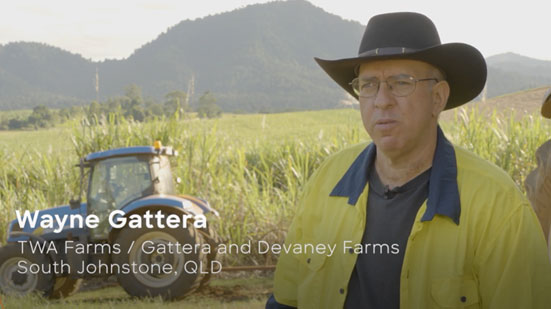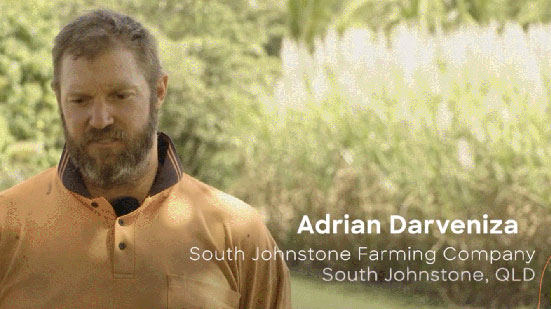Get paid to improve your operations
with Reef Credits
Reef Credit projects enable farmers to invest capital in their business
Reef Credits is a voluntary environmental market scheme that financially rewards land managers within the Great Barrier Reef catchments for on-farm changes that measurably improve the quality of water flowing to the Reef.
Projects are carefully designed to achieve water quality outcomes without compromising agricultural productivity, and additional income stream generated through Reef Credits is yours to invest back into your operations.
Projects focus on improving nutrient efficiency and reducing the flow of Dissolved Inorganic Nitrogen into waterways through improved cropping practices or by establishing wetlands. Reef Credits also support gully restoration, generating Reef Credits by preventing the flow of fine sediment onto the Reef from agricultural land.
Each Reef Credit is a tradeable unit representing a 1kg of nutrient or 538kgs of sediment prevented from entering the Great Barrier Reef.


Key benefits
- Improved on-farm nutrient efficiency
- Reduced erosion of agricultural land
- An additional, diversified income stream
- Improved business resilience
- Improved water quality for the Reef
View our projects
FAQ
Who can undertake a project?
Anyone who is a landowner or land manager can undertake a Reef Credit project. Find out more about project development here. To find if your project or your property is eligible please contact GreenCollar.
Who administers the Reef Credits scheme?
The Reef Credits Scheme is administered by Eco-Markets Australia, an independent not-for-profit organisation. This is similar to other successful voluntary environment markets around the world and ensures the integrity of the market.
How much are Reef Credits worth?
The value of Reef Credits, like other environmental commodities such as carbon credits, depends on the supply and demand dynamics of the open market.
How are Reef Credit Methodologies written?
Reef Credit Methodologies can be written by anyone wishing to see particular types of projects developed. Methods must comply with the requirements of the Reef Credit Scheme. The initial methods have been developed through collaboration between GreenCollar, NRM organisations, researchers, government and an expert advisory panel of scientific and other stakeholders.
Do the methods use modelling or water quality monitoring to quantify Reef Credits?
Some methods use modelling and others use water quality monitoring depending on the type of activity and availability of peer reviewed models.
Is Reef Credits a grant scheme?
No. Reef Credits are a market-based, non-government approach to improving water quality at the Great Barrier Reef. Credits are only generated when a specific, measured outcome is achieved. Income is derived from the sale of these credits to buyers and can be reinvested into farming operations.
Work with us
Contact GreenCollar by phone or email to have an initial discussion or arrange a free Reef Credit assessment. We’re happy to arrange a site visit to determine whether a project is possible and which type of project best will generate Reef Credits.
Bart Dryden – 0400 705 830
Tristan Robertson – 0422 273 577










